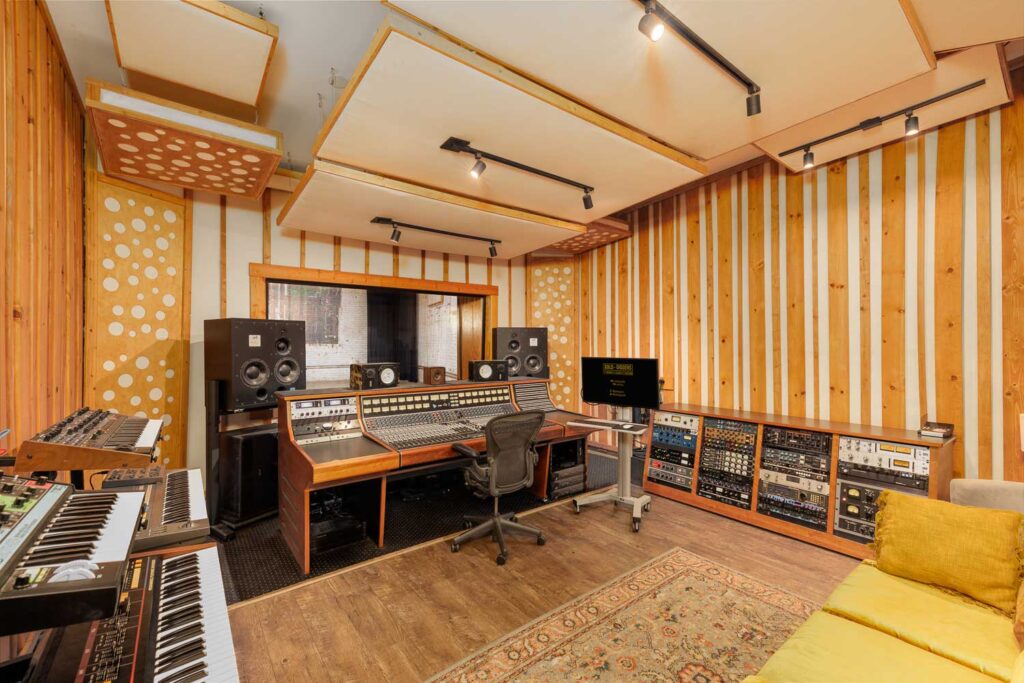Achieving technical excellence in a music recording studio demands a meticulous approach, blending equipment with skilled engineering and a deep understanding of sound dynamics. At the core of this endeavor lies the pursuit of precision in every stage of production, from initial recording sessions to final mastering. Here is a detailed exploration of how a recording studio achieves such technical excellence:
State-of-the-Art Equipment:
Central to any modern recording studio is its equipment. High-quality microphones, preamps, and converters capture the nuances of sound with clarity and fidelity. Studios invest in industry-leading digital audio workstations DAWs like Pro Tools or Logic Pro, which offer sophisticated editing and mixing capabilities. Analog equipment such as compressors and equalizers add warmth and character to recordings, complementing digital precision with vintage richness.

Acoustic Design and Treatment:
An often-overlooked aspect of technical excellence is studio design. Acoustic engineers meticulously plan the layout, ensuring optimal room dimensions, materials, and isolation techniques to minimize unwanted reflections and ambient noise. This creates a controlled environment where recordings are clean and true to the artist’s intention.
Skilled Engineering and Production:
Behind the mixing console, skilled engineers and producers orchestrate the recording process. They possess a deep understanding of audio physics, microphone placement techniques, and signal processing. Their expertise extends to balancing track levels, applying effects, and sculpting the overall sound to achieve sonic cohesion across instruments and vocals.
Attention to Detail in Recording:
During recording sessions, attention to detail is paramount. Engineers work closely with musicians to capture each performance flawlessly. They monitor signal levels to avoid distortion, adjust microphone positions to capture the ideal sound, and utilize techniques like multi-microphone setups for versatility in post-production.
Editing and Mixing:
Post-recording, meticulous editing and mixing refine the raw tracks into a polished masterpiece. Engineers trim silence, correct timing discrepancies, and eliminate unwanted noise or clicks. Mixing involves balancing the levels of individual tracks, panning instruments across the stereo field, and applying EQ and dynamics processing to enhance clarity and impact.
Mastering for Consistency:
Mastering engineers provide the final touch, ensuring consistency and clarity across all tracks of an album or single. They optimize overall loudness, apply subtle EQ adjustments for tonal balance, and finalize the sequence of songs for a cohesive listening experience. Mastering involves both technical precision and an artistic ear to preserve the dynamics and emotional impact of the music.
Collaboration and Communication:
Achieving technical excellence also hinges on effective collaboration and communication. Studios foster a collaborative environment where artists, engineers, and producers work synergistically towards a shared vision. Clear communication ensures that technical decisions align with artistic intentions, leading to recordings that resonate authentically with listeners and Learn More at Rift Studios.
Lastly, studios committed to technical excellence embrace continuous improvement. They stay abreast of technological advancements, refine their workflows, and train their staff to leverage new tools effectively. By adapting to industry trends and evolving standards, studios ensure they remain at the forefront of sonic innovation. By mastering each stage of production with unwavering attention to detail, studios elevate music to its highest sonic potential, enriching the artistic landscape with clarity, depth, and emotion.